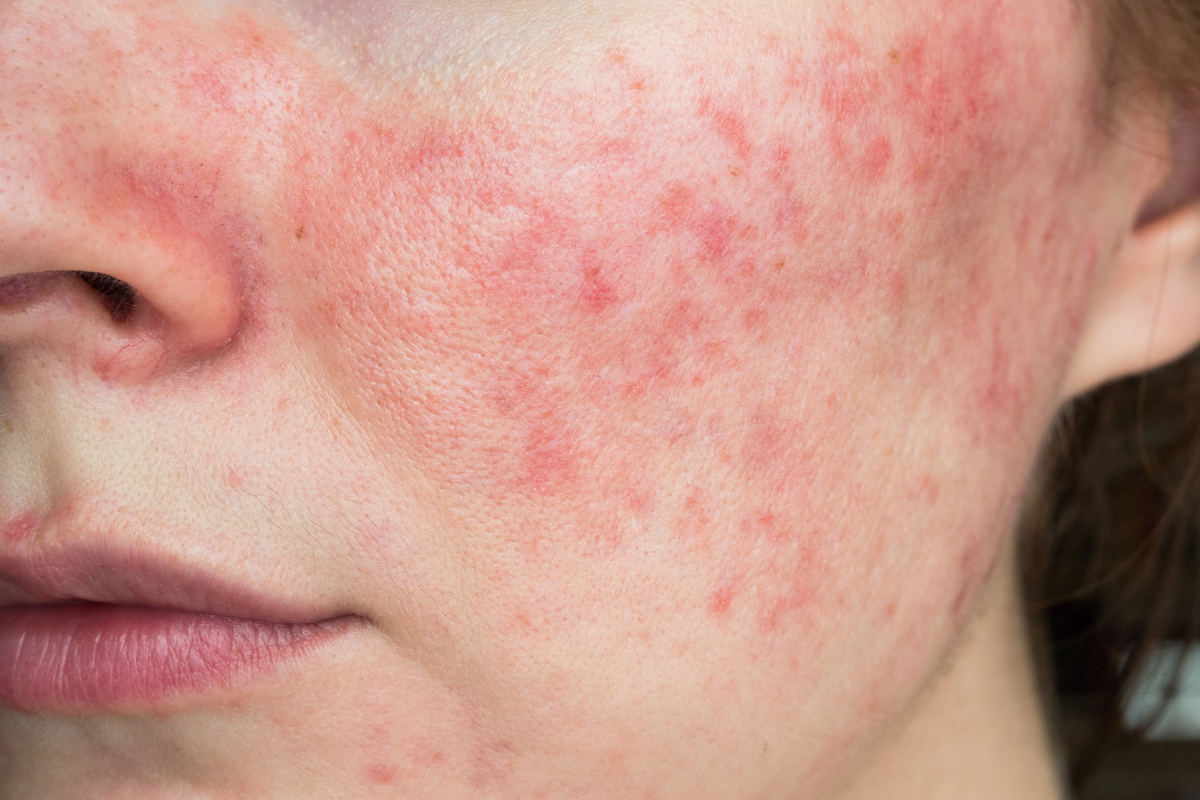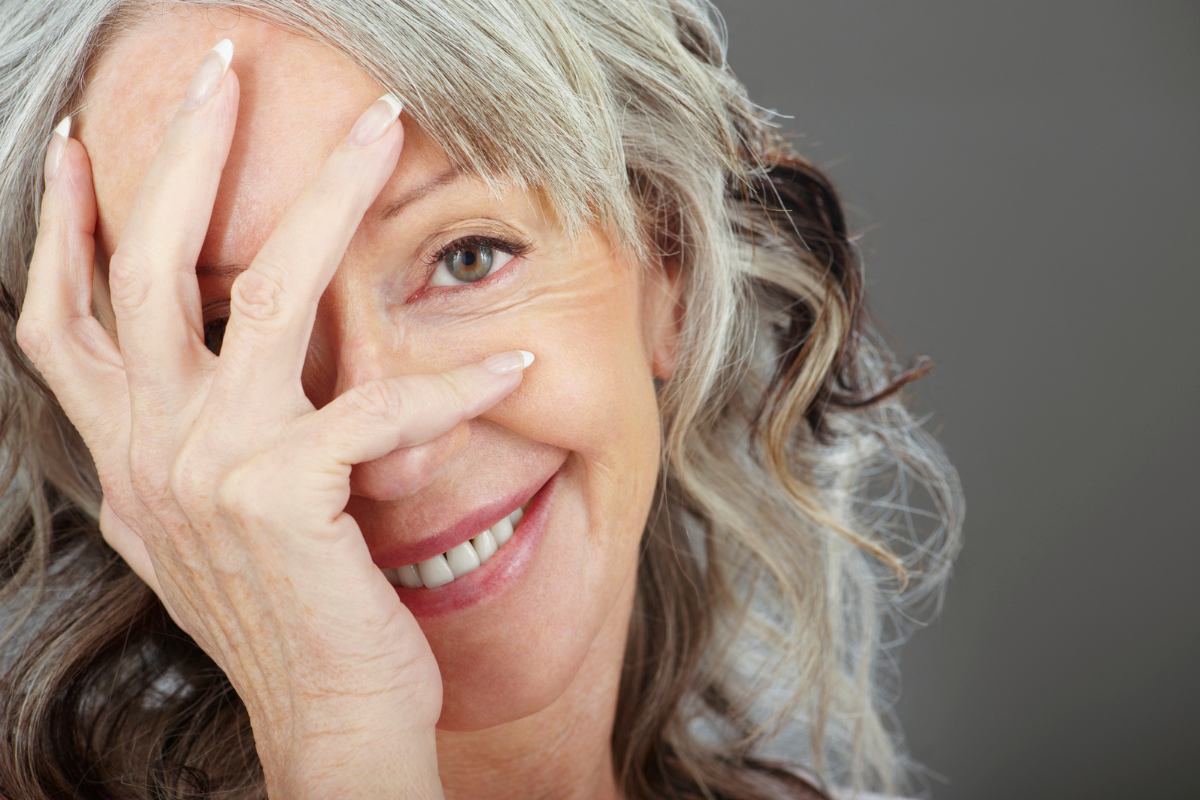Collagen and rosacea

Collagen and rosacea
Collagen has been shown to reduce the severity of rosacea because it strengthens connective tissue and increases the strength of blood vessel walls. Collagen helps restore and rebuild damaged connective tissue, which is very important for rosacea patients. Collagen also helps hydrate the skin and relieve dryness and irritation, both of which are common rosacea symptoms. Also taking a dietary supplement with zinc together with a collagen supplement can help with rosacea, also dietary supplements with vitamin D can alleviate rosacea.
What is rosacea?
Rosacea is a chronic inflammatory skin disease that occurs in the central parts of the face. Common symptoms are superficial blood vessels, redness, pimples and sometimes even blisters and swelling of the nose, which is most common in men.
The skin disease is often confused with acne and can sometimes be mistakenly called adult acne, as these skin diseases have similar symptoms. There is no permanent cure for rosacea, but symptoms can be alleviated when they flare up.
Rosacea is a chronic skin disease. The cause of rosacea is still unknown, and there is no cure. However, research has enabled doctors to find ways to treat the condition by minimizing its symptoms. There are four subtypes of rosacea. Each subtype has its own set of symptoms. It is possible to have more than one subtype of rosacea at a time. Rosacea symptoms are small, red, filled bumps on the skin. Rosacea usually only affects the skin on the nose, cheeks and forehead.
These symptoms often occur in cycles. This means that you will experience symptoms for weeks or months at a time, the symptoms will go away and then come back.
What causes rosacea?
The cause of rosacea has not yet been determined. It can be a combination of hereditary and environmental factors. Certain things are known to make your rosacea symptoms worse. These include:
- spicy food
- foods that contain the compound cinnamaldehyde, such as cinnamon, chocolate, tomatoes and citrus
- hot coffee or tea
- the intestinal bacterium Helicobacter pylori
- a skin mite called demodex and the bacteria it carries, Bacillus oleronius
Which people can develop rosacea?
There are certain factors that make you more likely to develop rosacea than others. Rosacea often develops in people between the ages of 30 and 50. It is also more common in people who are fair-skinned and have blond hair and blue eyes.
There are also genetic links to rosacea. You are more likely to develop rosacea if you have a family history of the condition or if you have Celtic or Scandinavian ancestry. Women are also more likely to develop the condition than men. But men who develop the condition often have more severe symptoms.
Is collagen good for rosacea?
Rosacea is a common skin disease that causes redness and visible blood vessels on the face. There is no certain cause of rosacea, but symptoms can be worsened by environmental factors, an overactive immune system, how you feel, spicy foods, medications, and certain skin and cosmetic products. Unfortunately, there is no cure for rosacea, but you can control the symptoms with various treatments. Collagen can help relieve rosacea symptoms.
Can zinc help with rosacea?
Zinc supplementation (25 mg three times a day for three months) reduced the severity of rosacea by about 75%, human studies show. There are many studies that have shown the benefit of taking a daily zinc supplement to reduce rosacea, but also acne. Zinc is important for our skin to function properly and can be found in many foods such as pumpkin seeds, oysters and beef. Long-term users of zinc should also take a copper supplement to prevent copper deficiency.
Can Vitamin D Relieve Rosacea?
Because vitamin D strengthens the immune system and soothes the skin, this vitamin also has good effects on inflamed acne and rosacea.
Is magnesium good for rosacea?
Magnesium is a trace element that is essential for your body's health and function. When magnesium deficiencies occur, it can make the vessels more prone to dilation, which is exactly what rosacea sufferers don't need more of. You can increase the amount of magnesium you get in your diet by increasing your consumption of nuts, seeds, spinach, beans and potatoes, and via a magnesium and collagen supplement with ashwagandha.
Can ashwagandha help with rosacea?
Ashwagandha is one of the most powerful herbs for treating rosacea. Being anti-inflammatory in nature, it strengthens the skin from within and helps get rid of rosacea. Collagen supplement with ashwagandha and magnesium.
Can selenium counteract rosacea symptoms?
Selenium is another trace element that may play a role in the proper functioning of your blood vessels. In case of selenium deficiency, the vessels under the skin can dilate, which causes a feeling of redness like in rosacea. To make sure you maintain healthy levels of selenium, include foods such as meat, fish, eggs, beans and nuts in your diet, along with collagen peptides and vitamin C.
How can symptoms of rosacea be controlled?
Rosacea cannot be cured, but you can take steps to control your symptoms. Be sure to take care of your skin with gentle skin care products and oil-free, water-based skin care products.
Avoid products that contain:
- alcohol
- menthol
- witch hazel
- exfoliating agent
These ingredients may irritate your skin symptoms.
Write down what you eat and which skin care products you use. This will help you find out what is making your symptoms worse.
Other things you can do to prevent rosacea symptoms:
- avoid direct sunlight and use sunscreen
- avoid drinking alcohol
- use laser and light therapy to help with some severe cases of rosacea
- Microdermabrasion treatments* to reduce thickening of the skin
- Take eye medication and antibiotics for ocular rosacea
*Microdermabrasion increases the supply of nutrients and oxygenation to the cells by grinding away dead skin cells, calluses and superficial skin damage. Crystals exfoliate the skin and accelerate cell renewal and stimulate healing.
- Tags: Hud/Skin Kollagen/Collagen









